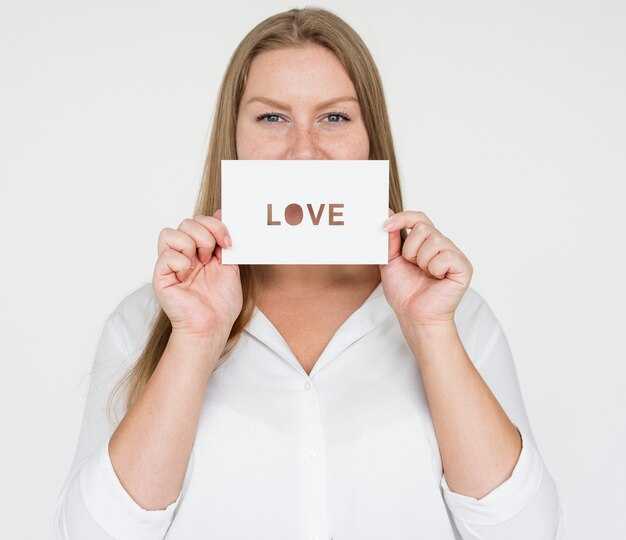When people who have endured psychological trauma begin dating, it’s easy for them to drift away from the present and construct elaborate interpretations about why others behave as they do and why we feel hurt by them. We hide the fact that we are wounded, so we cling hard to narratives like “this is happening now.” A major sign you’re denying that someone isn’t treating you well is feeling bewildered when the person you’re dating treats you poorly. Today’s letter comes from a woman named Pam, who writes: “Dear Bad Childhood Fairy, I’m a 35-year-old middle-management director working in mental health. My childhood was marked by emotional neglect: a single mother with severe depression and a controlling, dependent grandmother who lived an hour away but seemed to perpetually bring chaos into our lives. I’ve got my fairy pen ready to circle things I might want to revisit. I grew up poor, stuck in a cycle of crushing debt, and have been fighting to extricate myself and put distance between me and my caregivers.”
“Over the past five to ten years I’ve been actively trying to heal the emotional damage from my childhood and its heavy influence on my relationships. Five years ago I got married and had the wedding I wanted; I thought that was what I wanted, but later realized my husband and I weren’t actually good for each other. We were both abuse survivors at very different points in our recovery when we married, and that mismatch intensified after the wedding. Eventually I ended the marriage after cheating. I’m hurting. During that time I listened to your channel and other PTSD resources and started connecting patterns in my life to PTSD — a term I only discovered recently. It’s nice to finally have a word for it, right? I see myself reflected in many behaviors and conflicts.”
“I’ve spent years piecing together therapy work to try to navigate these waters, and I’m currently in active treatment for my past relationships. Initially I would do anything to make someone love me: I slept with people on the first date, I tolerated mistreatment because I felt I didn’t deserve better. In one relationship I endured casual sex and sporadic affection from a man who never acknowledged we were a couple — we only labeled it when, two years later, we started living together. I call what I did ‘crap fitting’ — a word I made up for adapting myself to a situation that isn’t acceptable for me. On the flip side, I cheated to get out of relationships. This theme keeps resurfacing: I cheated to leave situations I didn’t want to be in. I didn’t want to be in my marriage either; it felt like proof that I was unlovable so I could justify leaving.”
“I attacked partners with harsh statements full of judgement, expectations, and anger about why they couldn’t fix the chronic loneliness I felt. That all sounds a lot like complex PTSD. As I work through the parts of me that contributed to my failed relationships, I find it increasingly hard to even imagine the healthy relationship I deserve — especially when I fall into emotional obsession. You have this complex sentence-building style — not a criticism, just an observation. The pattern is that you aren’t very direct about what you feel; you layer meaning through constructions and psychological concepts rather than saying things plainly. For example, you wrote that you ‘find it increasingly difficult to make space to imagine the good relationship you deserve.’ Why not simply say, ‘I find it harder and harder to imagine the good relationship I deserve’? The idea of ‘making space’ is very metaphorical; you can’t literally make it. Saying ‘I can’t imagine it right now’ is straightforward and normal. And when you add, ‘especially when I find myself emotionally obsessed,’ that is a classic symptom — you aren’t alone here.”
“I’m working on one situation now: I’d been talking to a man for only two months with little conversation between us, which I connected to the idea of taking things slowly. Finally we met in person about three weeks ago, and our conversation was great — he was respectful and kind. He paid for everything, which may seem small but matters to me because I’ve often been the provider in relationships; that gesture felt significant. He offered me a comfortable seat, asked about my career goals, shared his impressive ambitions, and we found common ground: travel, battling existential fear, and building a life filled with meaningful, grounding activities outside of work. We’re both busy and employed, trying to keep our non-work lives full of things that help us manage stress. I was very impressed by what he said — it seemed like a good match.”
“We scheduled a follow-up date for a little over a week later, which seems reasonable. I was excited but tried not to bombard him with messages or pressure him for contact because we were just getting to know each other. This is one of those spaces I struggle with — the ‘space’ word shows up again. You say you have trouble with it; I get that. You can see what not to do, but actually maintaining the appropriate distance is hard. Try just saying, ‘Keeping appropriate distance is hard for me,’ instead of wrapping it in other language.”

“There’s a loop I hear in your description where you struggle to recognize your feelings — that was pointed out to me early in my healing. I used to say, ‘Part of me thinks…’ and my friend would cut in, ‘There isn’t a part of you; that’s what you think,’ helping me stop externalizing. You said you had mixed feelings; that was useful. You didn’t have to embody those feelings as another person or imagined entity. So this metaphorical ‘holding space’ keeps coming up.”

“We texted occasionally and well, and the day before the date I made a mistake: I joked that it was a ‘test.’ I was trying to express how excited I was without spilling my disappointment about every past relationship. I meant it playfully — ‘I don’t want to be the one who plans everything, it’ll be fun to see how you do.’ He understood the joke and I thought it was harmless, but I can see how it might’ve made him uneasy. He came up with a fun plan, but said it wouldn’t work for the next day, so he postponed it another two weeks. I was stunned. I tried to tell him I was disappointed without blaming him. Again, I saw my flaws and wanted to ‘keep the space.’”
“That phrase — ‘keep the space’ — keeps reappearing. You end up saying you want to ‘keep the space’ as though it’s a tidy container that preserves only what you want, but often it reads as avoidance. You keep using that line: ‘I want to keep the space.’ It feels like a dodge from naming what you really feel. I can be irritating for bringing this up, but it strikes me as avoidance when someone keeps repeating ‘I want to keep the space’ instead of being explicit. Anyway, he suggested lunch as a temporary compromise: we’d have the planned date in two weeks and lunch the next day. I was excited. Then he canceled an hour before. I told him I was hurt, but then I dissociated into the void again — I scrolled away, which is my way of clarifying the feelings just enough to feel the pain while also reaching for distractions. We talked it through — him and me — and we found…”
There’s a decent rapport now — it’s been two weeks and you’re still talking. Nothing dramatic has happened, but people keep advising you to “take it slow,” and that seems comfortable to you. I suspect, though, that this isn’t really a gentle slowing down so much as a slow fade: he’s quietly sliding out of your life and having trouble saying it outright. That’s what it looks like. When you asked about the time and place for a date the day before, he said he had a hangover and would get back to you — and twelve hours later there was still nothing. You’re being softly ghosted. I’m sorry, that’s really rough. Wishing him well while keeping some distance makes sense, but I’m curious what you mean when you say you’re “keeping space.” Can I ask if by “holding space” you mean you’re stepping away from your own feelings — denying what you truly feel or overthinking instead of simply feeling it? That kind of distancing can feel invalidating and painful. Who would do that? He’s ignoring you, even though he seemed genuinely into you and things felt really good. You distract yourself, check things again, and he replies that he’s in a strange, anxious place and still unsure about our plan — yes or no — for the date. That’s awkward, and honestly — sometimes people force themselves to play a more respectable version of who they are because they can’t face their own uncertainty. If he isn’t excited, don’t give him your emotional energy.
You asked for suggestions because your head is spinning and you feel like you’ve tried everything and nothing works. I hear you being emotionally reactive; the feelings hit hard and fast. It’s heartbreaking — you’ve been through a lot, and it hurts when a genuinely good person can’t make it work. You didn’t do anything wrong. Take a breath. Let the tears come. Find a way to make space inside you for what’s happening. When you talk about “making space,” I get that you might mean staying mentally healthy — that makes sense — but in the situations you described it often translates to denying what you feel: thoughts race ahead before you can sit with the sensation. You start crying again because those thoughts don’t help; the usual coping strategies feel useless because you’re telling yourself you don’t deserve better. Remember that everyone has their struggles, and you barely know this man. The worry that if you don’t figure out how to keep him you’ll end up alone is loud — that fear of being solitary forever shows up as conflicting emotions. Yes, it’s just one man, but rejection like this stings deeply.
It’s okay to feel sad and to wrestle with feelings of unworthiness for a while. Allow the real feelings to come out — don’t shame them. One practical thing to do is put your fears into words: name each fear and resentment and then ask for them to be released. That’s a daily practice I’ve seen people use — saying the fears aloud or writing them down twice a day, followed by meditation — and it helps over time. There’s no shortcut; dating is exciting, and when you really like someone who, for unclear reasons, can’t be honest about what he wants, it’s painful. He might not be outright cruel, but you don’t have to “hold space” for him at the cost of denying your feelings. Be direct and candid from the heart — you don’t need to pretend you’re not hurt. You don’t have to perform indifference; that’s a kind of self-abandonment. It’s valid to feel disgusted by manipulative or ambiguous behavior and to set that boundary: “This hurts. If you change your mind, reach out; otherwise, take care.” That clarity can be given earlier, but if it’s happening now, that’s fine too. The important thing is you’re free and you reached out for another perspective.
About the “holding space” phrase that shows up again and again in your message: often it’s interchangeable with “trying not to feel,” or “denying my true emotions.” When you say “I don’t feel the way I do,” that voice is trying to protect you from pain, but it also keeps you from connecting with partners who truly match you. If you always aim to be the most polished version of yourself that never cracks, you’ll miss people who could love your messy, real self. Real relationships reveal who you actually are; all the pretenses fall away. If you have trauma, your edges might be rough and you might overreact sometimes, and it’s okay that you’re still learning to trust yourself. Dating teaches you what you’re good at and what challenges you face. Let life give you feedback so you can decide where to go next.
Good job for putting this out there and asking for another viewpoint. Hopefully this reframing helps you see the “holding space” habit more clearly. Practice naming the fears you described — for example: “I’m afraid I’ll never find anyone; I’m afraid I did something wrong; I’m afraid I don’t deserve love.” Translate those statements into a daily practice: write them down, breathe, meditate, and rebuild your footing after a stumble. It’s hard to regain balance after a setback, but you can do it. You long to be able to hold space without collapsing or numbing out — that’s a worthy goal. You are conscientious, and your feelings are normal. Sometimes you have to kiss a lot of frogs; I’m not saying this man was a frog, but he didn’t handle saying what was happening in a clear way. From what you describe, he did seem to care, but he was wrestling with something inside and couldn’t be forthright. He kept the door ajar while trying to see if his feelings would fade. That’s not an ideal approach, but it isn’t outright malicious — more a kind of procrastination. You don’t have to deny or minimize your hurt when someone toys with your heart.
It’s fine to be disgusted by that behavior, to say, “This feels bad,” and to leave the ball in his court if he later changes his mind. It’s also a relief that you’re no longer entangled and that you sought a second perspective. I hope something here shifted for you, and that thinking about “holding space” as a pattern that’s appeared repeatedly helps you notice when you start to deny your emotions. You won’t be loved by everyone, only by the people who are right for who you truly are, not who you pretend to be. Give yourself permission to be real from the start, and keep working on trusting yourself.
Nice work getting this far, Pam — try again when you’re ready. Below is a PDF I put together called “Signs of a Great Partner,” which lists traits to look for when deciding whether someone is right for you. That man gave you hints while withdrawing; you can download the PDF from here. See you very soon. [موسيقى]













